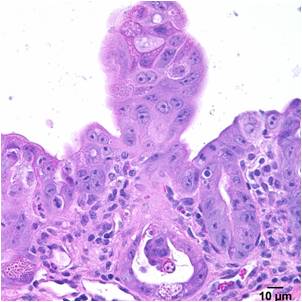About The Phenotyping Core
The Phenotyping Core provides pathology support and collaborations, and translational animal research expertise at Johns Hopkins.
Dr. Cory Brayton serves as director of the Phenotyping Core.
TESTING, PATHOLOGY etc options…
Please CONTACT US before submitting.
SHORT COURSE – HYBRID me680712-phenotyping-functional-genetics – July 2023
PHENOTYPING (and MOUSE PATHOBIOLOGY) COURSE at JHU
- The Core specializes in anatomic and clinical pathology, and mouse models of disease, and has expertise in diverse species, research areas and testing modalities.
- Large or long term projects involving pathology or other specialist input, usually merit collaboration with salary support of participating faculty.
- It is expected that JHU policies for authorship and acknowledgment will be followed.
- Please contact relevant faculty BEFORE beginning a project or submitting specimens.
- Phenotyping core submissions are scheduled through the iLAB system (note: JHED login is required).
- Phenotyping core hours usually are 9am-5pm on JH work days.
- Same day testing may not be available for specimens submitted after 4pm.
- NO hazardous specimens, and NO human specimens are tested.
- Review the list of available tests, options.
- Use the JHU iLAB system (JHED login required) for additional test information, scheduling, payment.
- Contact us by email or phone (below).
Contact
- For general enquiries, please call or email the Phenotyping Core directly:
- Phone: 410-502-3050
- Email: phenocore@jhmi.edu
- Address:
- Johns Hopkins University School of Medicine
- Edward D. Miller Research Building, Suite 851
- 733 N Broadway
- Baltimore, MD 21205
- (see map)
Key Personnel
Cory Brayton, DVM, Dip. ACLAM, Dip. ACVP
- (view faculty biography)
- Role: Core Director
- Expertise: Mouse models, genetically engineered mice, phenotyping, histopathology, clinical pathology, experimental design
- Phone: 410-502-3050
- Email: cbrayton@jhmi.edu
Affiliated Faculty
The phenotyping core interacts with Johns Hopkins faculty and cores with diverse phenotyping and research expertise ranging from live animal imaging to metabolomics. View a list of participating faculty, and their areas of expertise. Also search iLAB for other JH research cores.
Online Resources
- PHENOTYPING (and MOUSE PATHOBIOLOGY) COURSE at JHU
- JH Phenotyping Laboratory Manual 5th ed 2019
- JHU Mousers [JH Only] to join the listserve, email jhu-mousers-request@lists.johnshopkins.edu
- Spontaneous diseases in commonly used mouse strains and stocks (2013)
- Forum for Mouse Genetics Listserve (formerly Transgenic list)
- MGI Mouse Genome Informatics: Nomenclature, Phenome Database, Find Mice and ES cells etc
- IMPC International Mouse Phenotyping Consortium, Mice, Phenotyping Pipelines and data (IMPRESS)
- NIH Principles and Guidelines for Reporting Preclinical Research.
- ILAR Guidance for the Description of Animal Research in Scientific Publications. NRC 2011.
- ARRIVE Animal Research: Reporting In Vivo Experiments guidelines. Kilkenny et al. 2010.
Necropsy and histopathology to characterize and confirm important research findings, and diagnose unexpected findings or problems in a colony or research project.
[Segmented filamentous bacteria (intestine) affect immune development and responses in mice and other species]
High resolution radiography for small animals and specimens. [mouse foot]
Board certified pathologists can analyze and score neoplastic, toxic, and inflammatory changes.
![NSGileumSFB Necropsy and histopathology to characterize and confirm important research findings, and diagnose unexpected findings or problems in a colony or research project. [Segmented filamentous bacteria (intestine) affect immune development and responses in mice and other species]](https://mcp.bs.jhmi.edu/wp-content/uploads/2020/12/NSGileumSFB.jpg)
![Mouse-Paw-Faxitron-302x302 High resolution radiography for small animals and specimens. [mouse foot]](https://mcp.bs.jhmi.edu/wp-content/uploads/2020/12/Mouse-Paw-Faxitron-302x302-1.jpg)

